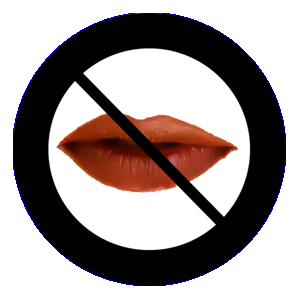
It’s enough to make you scared to write anything controversial.
In theory, the DMCA is a tool that’s intended to protect content creators. It’s a system through which one can quickly and easily flag down anyone who’s trying to copy your content; a process that one can use to protect content from plagiarists. Unfortunately, it seems like it’s more often used as a legal bludgeon.
The media is rife with stories of companies that issue fraudulent DMCA takedown requests, from Travel Alberta’s attempts to silence a satirical ad campaign to Warner Brothers’ shotgun campaign against torrenting sites. These requests are more than just a simple inconvenience, too. Having content torn from the face of the Internet hurts everyone – from the content creator to the people who link to them.
Techdirt tells the story of artist and photographer Dave Gorman, who biked around his city photographing letters painted by one Ben Eine, which he then posted in a set to his Flickr account. That set drew thousands of viewers, thousands of links, and hundreds of comments – including a backlink from Eine’s Wikipedia page. Unfortunately, Flickr deleted the photo soon after in response to a DMCA notice.
But that wasn’t all they deleted.
“The page it was on disappeared,” explained Gorman. “With it went all the comments, favorites, and the record of its views. That stuff matters only because I’m vain…but every blog that linked to it now has a broken link that goes nowhere, and that matters because links are what makes the Internet the Internet. With all those links broken, 6 years of photo sharing has been undone.”
“Reposting it doesn’t bring the comments/views/favorites back,” he continued; “nor does it put it back at the same url which would preserve the links. They’re all gone for good. The picture’s life from January 2006 is destroyed…instead it is reborn on March 2, 2012; its history wiped.”
Gorman wasn’t reliant upon the photo for his livelihood. Many content creators are. What that means is that false takedown attempts – whether or not they’re later corrected – are extremely damaging across the board.
That’s why WordPress’s recent victory in court against Straight Pride UK – though largely symbolic – is so important.
First, a little background information. Back in 2013, student journalist Oliver Hotham posted an interview he conducted with a now-disbanded political group by the name of Straight Pride UK. I’m certain you can work out on your own what they were supposed to represent.
To put it lightly, the interview didn’t exactly make them look good. They came across as petty, hateful, and generally uneducated. Naturally, when the article went viral, Hotham was immediately contacted by the group, who requested that he remove it from his site.
When he didn’t, they filed a DMCA takedown request against him to have it removed.
Only a few months later, WordPress parent company Automattic kicked off a new initiative – an attempt to fight back against people who use the DMCA as their personal censorship engine. Straight Pride UK was one of Automattic’s two test cases, along with a reader who targeted science journalism site Retraction Watch. In the case of Straight Pride UK, no one was able to track down the group’s press officer – Automattic and Hotham won by default.
Remember, I said the victory’s largely symbolic.
Even still, it’s refreshing to see some companies starting to take a stand against copyright abuse. Here’s hoping that other organizations soon follow WordPress’s example, and that individuals and organizations who use the DMCA as a weapon soon find that there are real legal consequences for doing so. Maybe lawmakers will even consider updating the legislation so it’s not as easy to abuse.
Here’s hoping, right?




